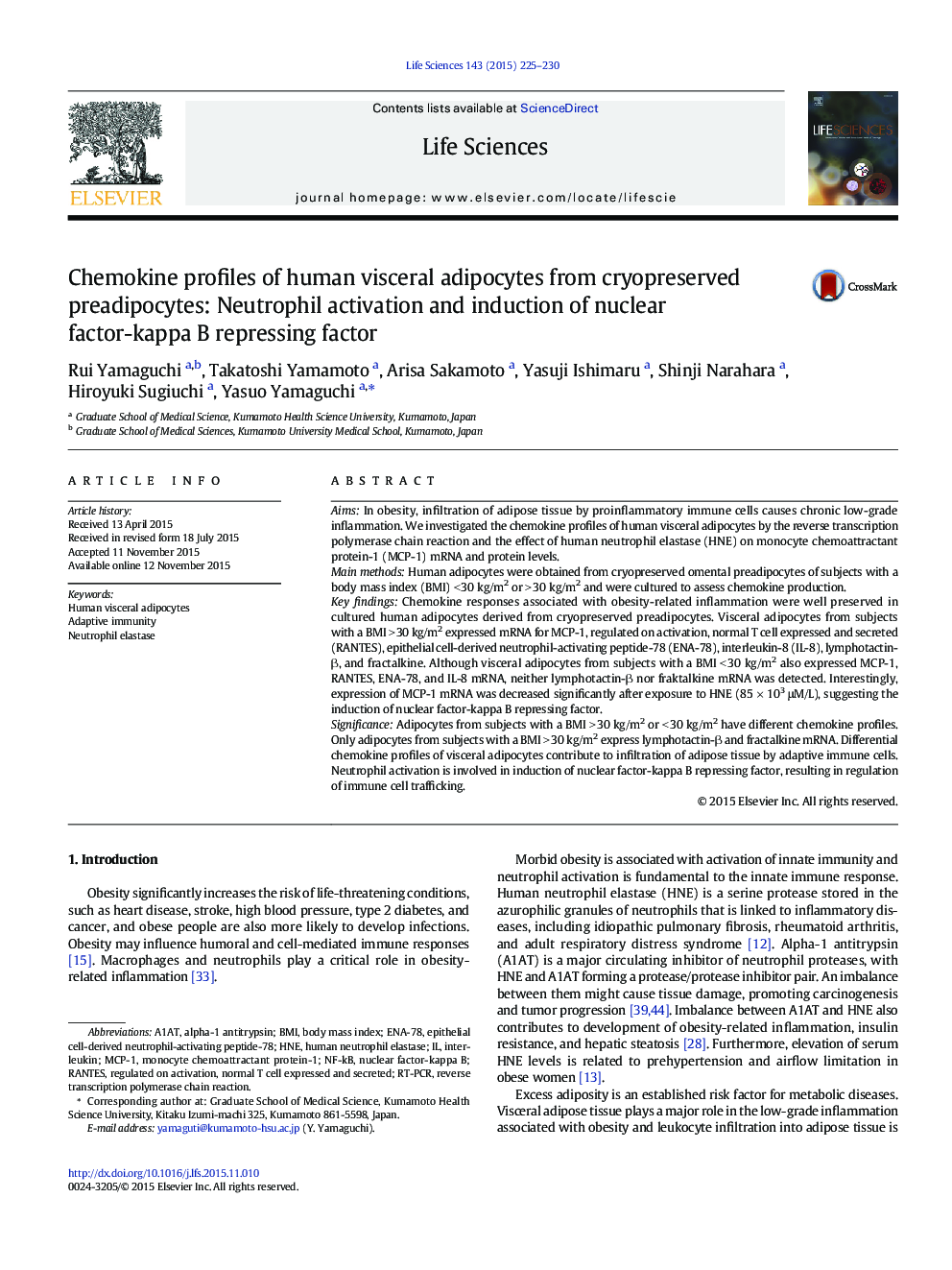| Article ID | Journal | Published Year | Pages | File Type |
|---|---|---|---|---|
| 2550717 | Life Sciences | 2015 | 6 Pages |
AimsIn obesity, infiltration of adipose tissue by proinflammatory immune cells causes chronic low-grade inflammation. We investigated the chemokine profiles of human visceral adipocytes by the reverse transcription polymerase chain reaction and the effect of human neutrophil elastase (HNE) on monocyte chemoattractant protein-1 (MCP-1) mRNA and protein levels.Main methodsHuman adipocytes were obtained from cryopreserved omental preadipocytes of subjects with a body mass index (BMI) < 30 kg/m2 or > 30 kg/m2 and were cultured to assess chemokine production.Key findingsChemokine responses associated with obesity-related inflammation were well preserved in cultured human adipocytes derived from cryopreserved preadipocytes. Visceral adipocytes from subjects with a BMI > 30 kg/m2 expressed mRNA for MCP-1, regulated on activation, normal T cell expressed and secreted (RANTES), epithelial cell-derived neutrophil-activating peptide-78 (ENA-78), interleukin-8 (IL-8), lymphotactin-β, and fractalkine. Although visceral adipocytes from subjects with a BMI < 30 kg/m2 also expressed MCP-1, RANTES, ENA-78, and IL-8 mRNA, neither lymphotactin-β nor fraktalkine mRNA was detected. Interestingly, expression of MCP-1 mRNA was decreased significantly after exposure to HNE (85 × 103 μM/L), suggesting the induction of nuclear factor-kappa B repressing factor.SignificanceAdipocytes from subjects with a BMI > 30 kg/m2 or < 30 kg/m2 have different chemokine profiles. Only adipocytes from subjects with a BMI > 30 kg/m2 express lymphotactin-β and fractalkine mRNA. Differential chemokine profiles of visceral adipocytes contribute to infiltration of adipose tissue by adaptive immune cells. Neutrophil activation is involved in induction of nuclear factor-kappa B repressing factor, resulting in regulation of immune cell trafficking.
